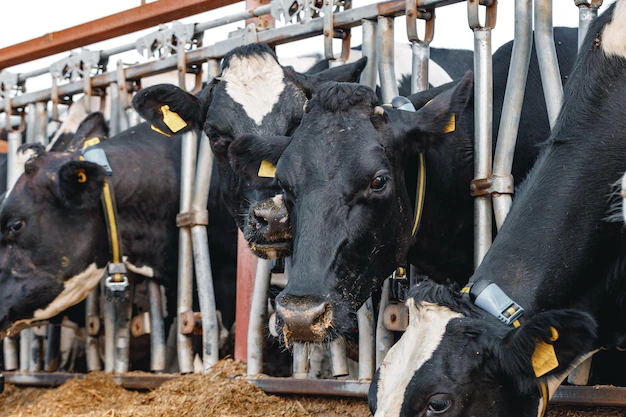Promoting sustainable rangeland management is crucial for ensuring the long-term viability of livestock production while preserving the health and productivity of rangeland ecosystems. Here are some key strategies and practices for promoting sustainable rangeland management for livestock production:
- Grazing Management: Implementing effective grazing management practices is essential. This includes rotational grazing systems, where livestock are moved regularly between different grazing areas, allowing for adequate rest and recovery of vegetation. Proper stocking rates should be determined based on rangeland carrying capacity and forage availability to prevent overgrazing.
- Rest and Recovery Periods: Providing adequate rest and recovery periods for rangeland is crucial. Rest periods allow vegetation to regrow, maintain soil health, and prevent degradation. It’s important to consider seasonal variations and adjust grazing patterns accordingly.
- Water Management: Ensuring proper water management is vital for sustainable rangeland management. It includes maintaining water sources for livestock and wildlife, preventing overuse or contamination of water resources, and implementing strategies such as water catchment and storage systems.
- Fencing and Infrastructure: Installing appropriate fencing can help control livestock movement and prevent overgrazing in sensitive areas. Fencing can also be used to establish rotational grazing systems and protect riparian zones, wetlands, and other ecologically important areas.
- Rangeland Monitoring: Regular monitoring of rangeland conditions is essential for sustainable management. This includes assessing vegetation health, soil erosion, water quality, and wildlife habitat. Monitoring data can guide decision-making processes and help identify potential issues before they become significant problems.
- Rangeland Restoration: Implementing restoration practices on degraded rangelands can help improve ecosystem health and productivity. This may involve reseeding native plant species, controlling invasive species, and implementing erosion control measures.
- Collaboration and Education: Promoting sustainable rangeland management requires collaboration among stakeholders, including livestock producers, land managers, researchers, and policymakers. Sharing knowledge, best practices, and educational resources can help raise awareness and build capacity for sustainable management.
- Incentive Programs: Governments and organizations can develop incentive programs to encourage livestock producers to adopt sustainable rangeland management practices. These incentives can include financial support, technical assistance, and recognition for exemplary stewardship.
- Research and Innovation: Continued research and innovation in rangeland management practices can lead to more sustainable and efficient livestock production systems. This may include studying grazing patterns, plant-animal interactions, and the development of new technologies for monitoring and managing rangeland ecosystems.
- Adaptive Management: Recognizing the dynamic nature of rangeland ecosystems, it’s important to practice adaptive management. This involves regularly evaluating the effectiveness of management strategies, making adjustments as needed, and incorporating new knowledge and techniques to improve sustainability.
By implementing these strategies and practices, sustainable rangeland management can be achieved, supporting both livestock production and the long-term health and productivity of rangeland ecosystems.
Join 'Farmers Mag' WhatsApp Channel
Get the latest Farming news and tips delivered straight to your WhatsApp
CLICK HERE TO JOIN






